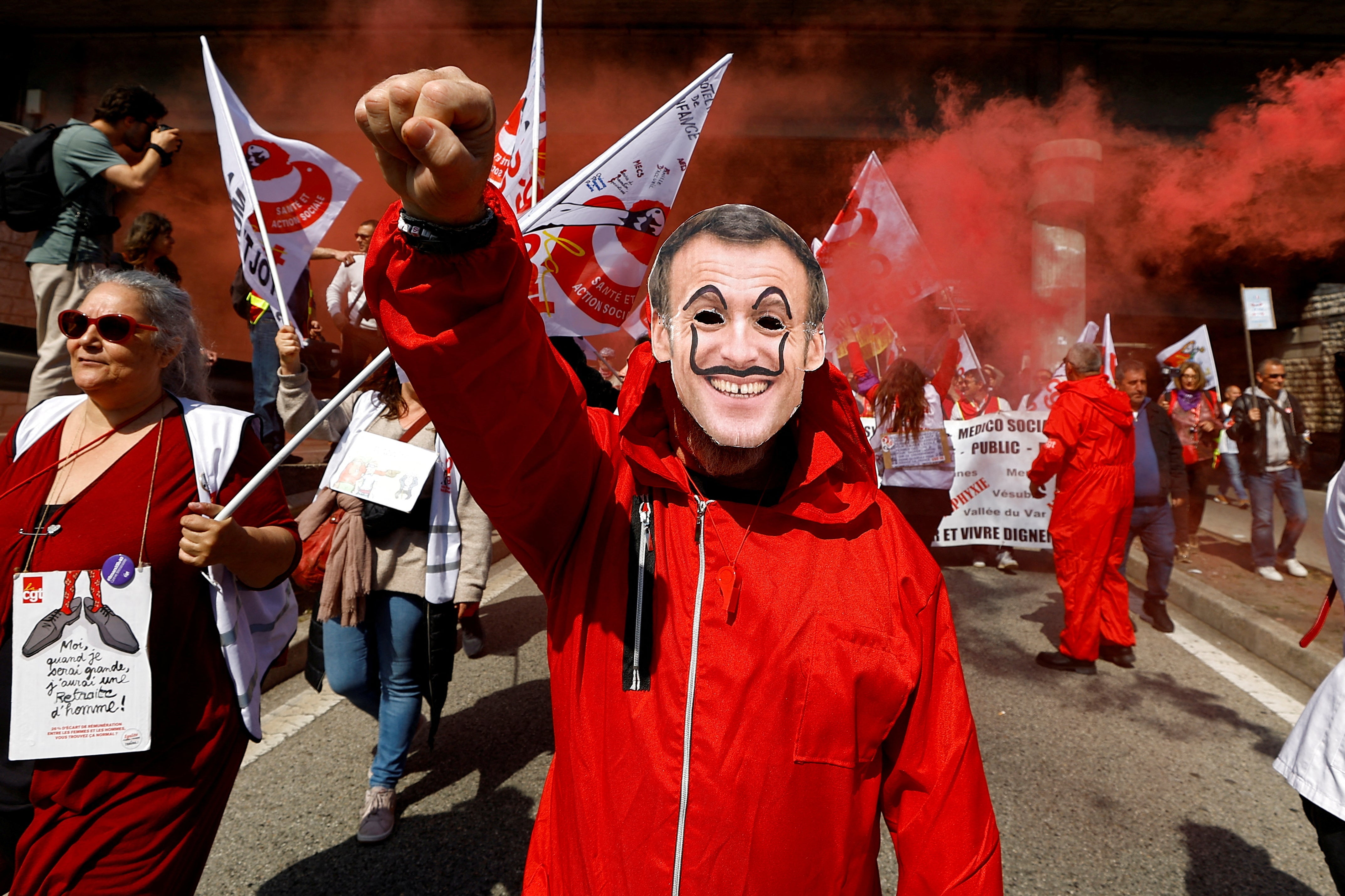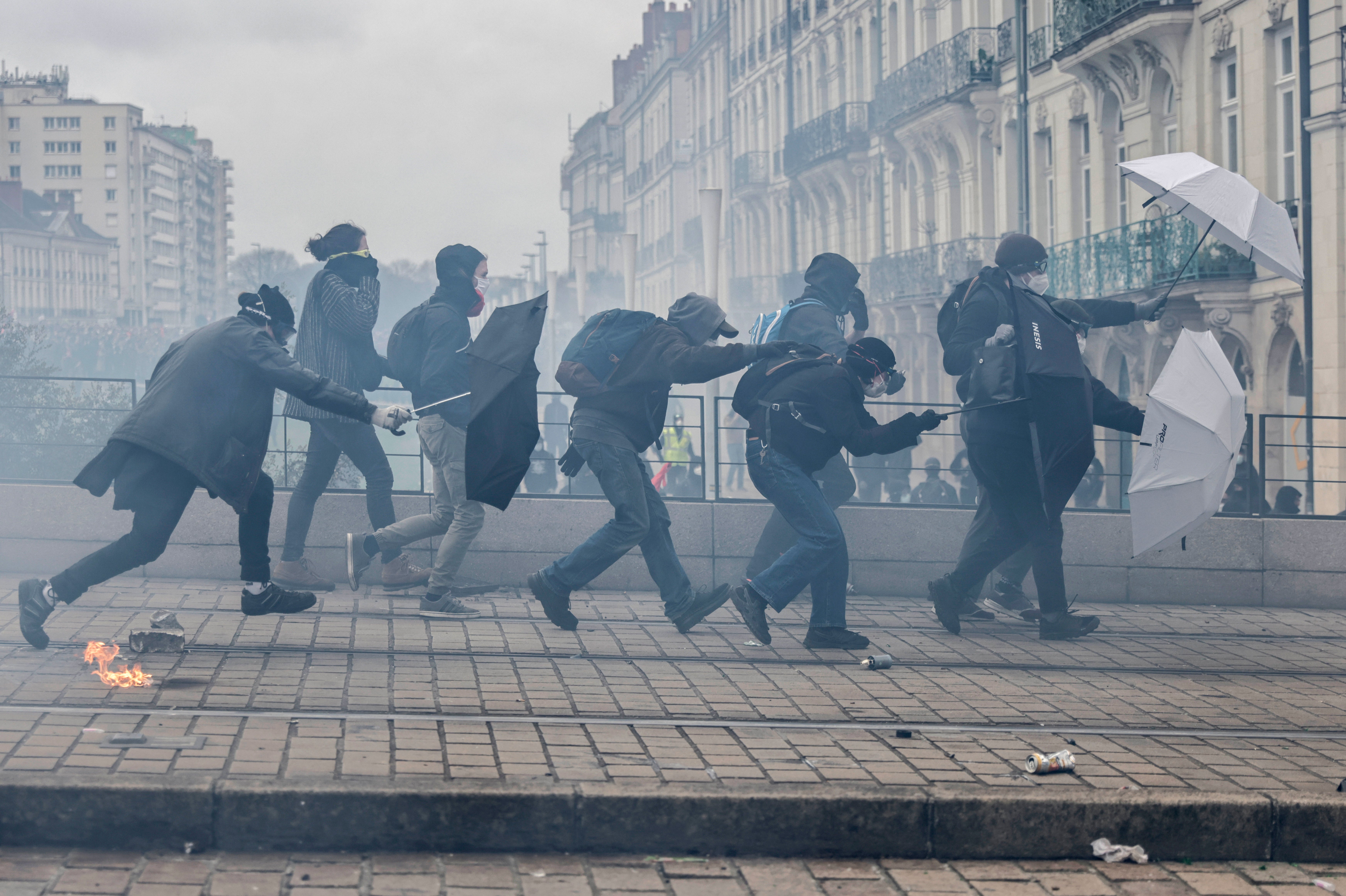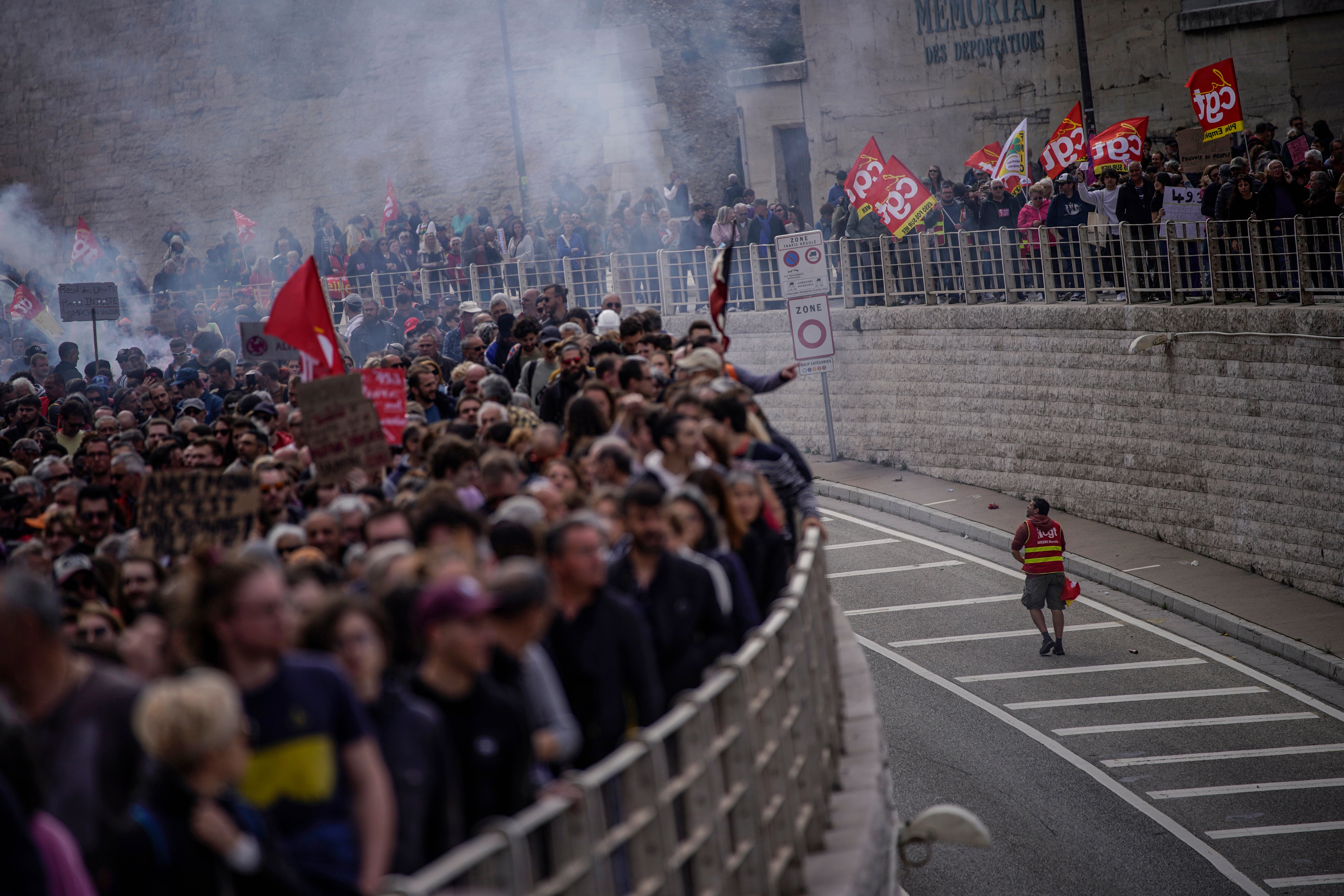Can Emmanuel Macron survive widening protests and strikes?
If Marine Le Pen can turn the current anger into votes, it could have implications for Europe says Sean O’Grady


Since the departure of Angela Merkel in September 2021, and Britain’s abdication from any kind of stewardship, Emmanuel Macron is Europe’s pre-eminent leader. However, his relatively modest reforms to retirement rules have resulted in one of the most dangerous challenges to his authority. And there’s no sign of the protests and strikes calming down.
What are they protesting about?
The proximate cause is the pension reform bill, which includes a provision to raise the legal age of retirement from 62 to 65. British senior citizens, threatened by Jeremy Hunt with perhaps having to work until they can claim a state pension, might look askance at French objections – but it is a deeply unpopular policy.
On top of that is the democratic outrage of Macron imposing his will on parliament. Hence the disturbances and the general strikes.
Is Macron a dictator?
He is certainly pushing the limits of executive power permitted in the constitution of the Fifth Republic. When it was designed by Charles de Gaulle some 65 years ago, it was supposed to replace unstable governance by coalition with a strong presidency that has a commanding role in foreign and defence matters but also substantial power over domestic policy.

Recognising that emergency conditions may demand a curbing of parliamentary control, Article 49.3 states: “The prime minister, after deliberation by the council of ministers … may bypass a vote in the National Assembly on bills relating to state and social security budgets.” As a balancing measure, it also allows the assembly to reject the presidential move if the assembly passes a motion of no confidence in the government.
This safety brake was pulled on Monday, but the no-confidence vote was narrowly lost. The more potent threat to presidential authority is on the streets.
Are there precedents for this near rule-by-decree?
Plenty, and usually when the president’s party has failed to gain a majority in the parliament. Only last June, Macron’s En Marche movement lost its overall majority in parliament and his prime minister, Élisabeth Borne, had to use “Le 49.3” to get a budget passed.

Before that, the powers in the article have been deployed on some 87 occasions since the current constitution was promulgated in 1958. So, not so unusual.
And the riots?
Mais, oui. This sort of thing has happened before, going back to 1789. In recent years, the gilets jaunes have ebbed and flowed as a movement, with their grievances centred on the cost of living. Migration, crime and employment are also topics liable to create trouble. Direct action is best understood as an informal constitutional right, though unpredictable – and alarming, to foreigners. Britain hasn’t seen similar disorder except for the early 1980s and again in 2011. There is no sign yet that the British public is willing to set street furniture alight in support of the junior doctors or the RMT.
Will Macron survive?
With a fairly fresh mandate, Macron will almost certainly survive. The longer-term question is whether the present discontent can be exploited by Marine Le Pen and her National Rally party (formerly the National Front) in future elections. Macron cannot run for president again, and one must wonder whether his personal vehicle En Marche – an odd populist-centrist creature – can thrive without him at its head. If not, and if Le Pen can capitalise on the divisions on the mainstream left and right, it could have profound implications for Europe.






Join our commenting forum
Join thought-provoking conversations, follow other Independent readers and see their replies
46Comments